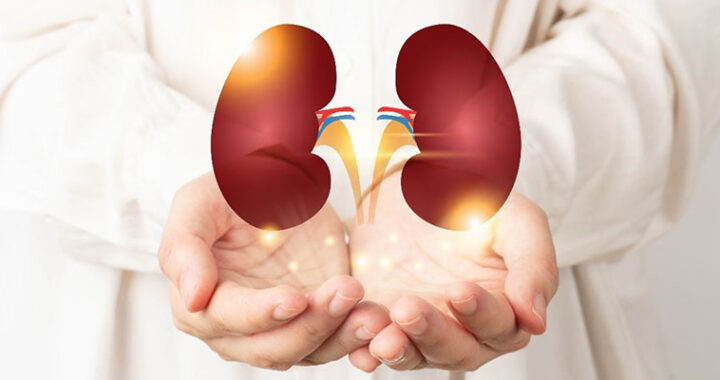Did you know that kidneys are one of the five essential organs for your survival?
Your kidneys are located at the bottom of your rib cage, on both sides of your spine, and are the size of a fist. They perform several essential functions.
Kidneys filter waste products, excess water, and other impurities from your blood. The bladder stores the waste product and then is later released through urine. Kidneys also play an important role in regulating pH, salt, and potassium levels in your body along with producing hormones that regulate blood pressure.
For overall health and general well-being, it is essential to maintain kidney health. Your body will expel and filter waste and produce hormones to help your body function properly, by keeping your kidneys healthy.
Below are a few tips that will help keep your kidneys healthy.
Eating a Healthy Diet and Monitoring Weight

Overweight / obesity can lead to chronic kidney disease (CKD) by putting you at risk for type 2 diabetes, heart disease and hypertension.
To maintain a healthy weight, it is important to eat a balanced and nutritious diet. Healthy diet, which is loaded up with fruits and vegetables, low-fat dairy products, healthy protein sources naturally low sodium, such as cauliflower, blueberries, fish, whole grains. Also, avoid ultra-processed foods along with too much salt, sugar, and saturated fat.
Quitting Smoking and Limiting Alcohol Intake

Smoking damages blood vessels of the body. This results in slower blood flow to your kidneys and throughout your body. There is an increased risk of developing kidney disease with people who smoke, drink, or both smoke and drink. Studies show that smokers who are also heavy drinkers are more likely to develop CKD than those who do not drink alcohol and smoke excessively.
Drinking too much alcohol can increase your blood pressure and add extra calories, which can lead to weight gain and increase your blood pressure. If you are a man, then you must limit yourself to two drinks and if you are a woman then you must limit yourself to one drink per day.
Exercising Regularly- Keep Fit and Active

Regular exercise is an important part of any healthcare regimen. Exercising improves muscle function, enables you to sleep better, helps maintain normal blood pressure and cholesterol levels.
The best types of exercise for kidney health are moderate-intensity exercise such as walking, running cycling, or swimming, which involves steady, whole-body movements. Regular exercise can lessen the risk of chronic kidney disease. It also helps reduce blood pressure and improves your heart health, which is important in preventing kidney damage.
Using Pain Medications Only as Prescribed

Frequently taking over the counter (OTC) pain medication — specifically nonsteroidal anti-inflammatory drugs (NSAIDs), such as ibuprofen and naproxen can damage your kidneys- if you take them regularly for chronic pain, headaches, or arthritis.
If you have been diagnosed with chronic kidney disease (CKD), talk to your doctor about the appropriate medication for you, even when it comes to over-the-counter medications and supplements and take them only as prescribed.
Keeping Yourself Well Hydrated

Regular and consistent intake of water is healthy for your kidneys. It is advisable to drink eight glasses of water a day to stay hydrated. But it also depends on your health and lifestyle for exactly how much water you should intake on daily basis. When planning your daily water intake, factors like climate, exercise, gender, and overall health are important to take into consideration. Water helps clear toxins and sodium from your kidneys and lowers your risk of chronic kidney disease.
People who have had earlier kidney stones should drink more water to help prevent stone deposits in the future.
Controlling your blood sugar

Kidney damage may develop among people with diabetes/ high blood sugar. When your body’s cells cannot use the sugar in your blood, your kidneys are forced to work extra hard to filter your blood.
However, you can reduce the risk of kidney damage if you can control your blood sugar. Also, your physician can take steps to reduce or prevent additional damage if the damage is caught early.
Follow a kidney-friendly diet and follow the instruction of your physician when it comes to diet, insulin, or other medications.
Monitoring blood pressure

High blood pressure (Hypertension) is one of the main causes of kidney damage. The impact on your body can be significant if high blood pressure occurs with other health issues like diabetes, high cholesterol, or heart disease. You should talk with your physician regarding medication, monitoring your blood pressure regularly, and making changes to your lifestyle.
Visit us, if you are concerned about your kidney health, or you have risk factors for kidney disease and you want to take proactive steps. To schedule an appointment with us, please visit – https://clinicalrenal.com/all-locations/. We are dedicated kidney specialists serving Southeast Pennsylvania for over 40 years.

